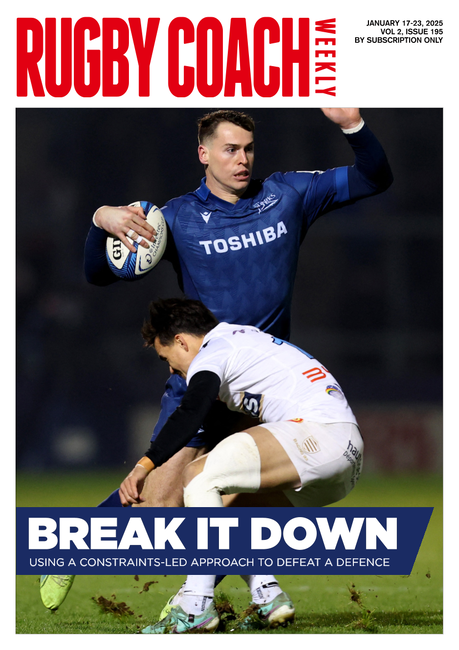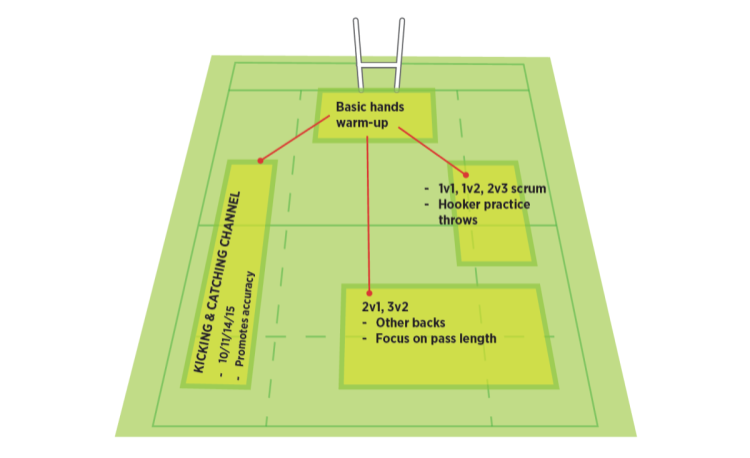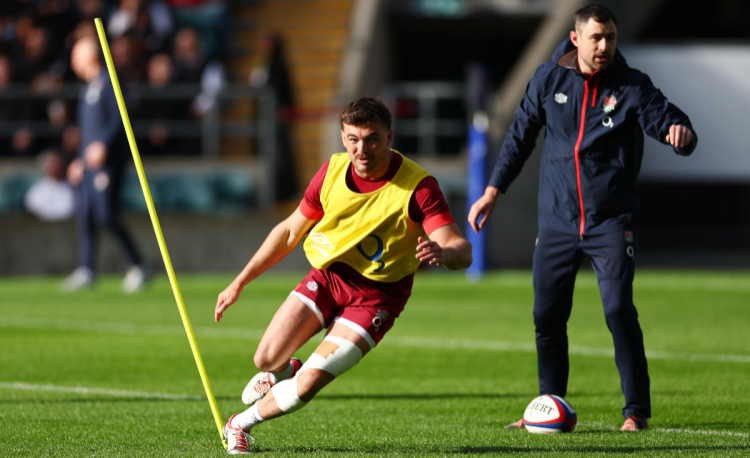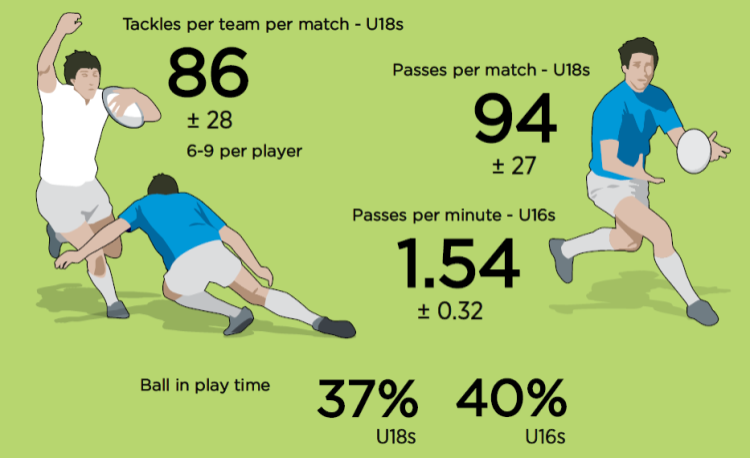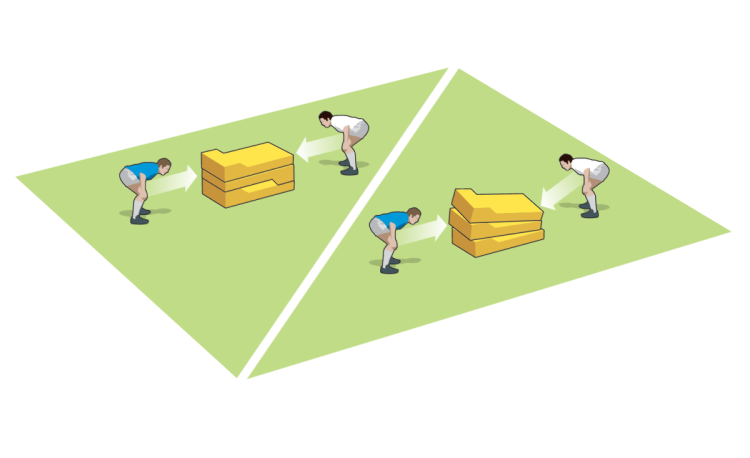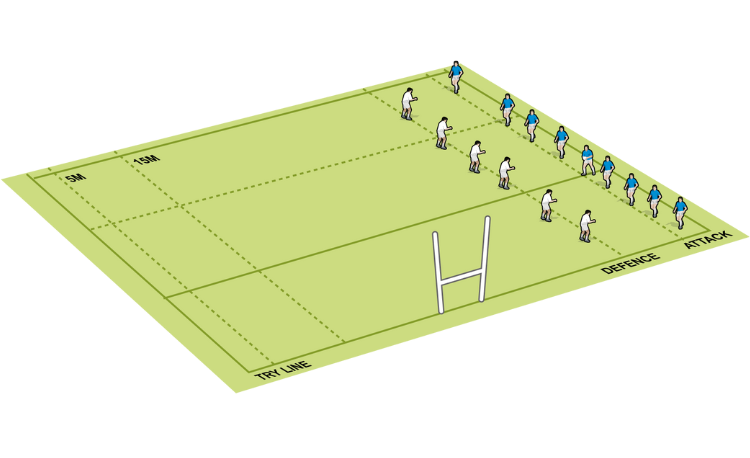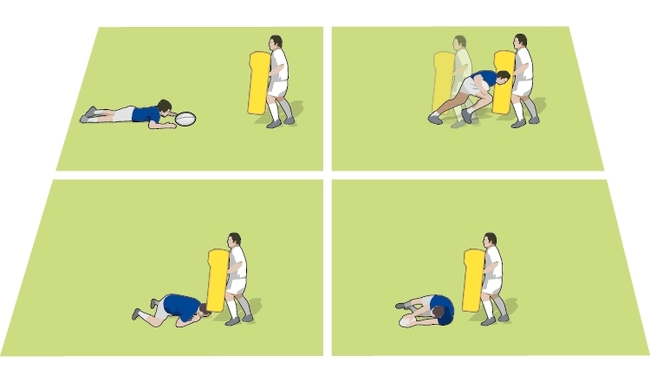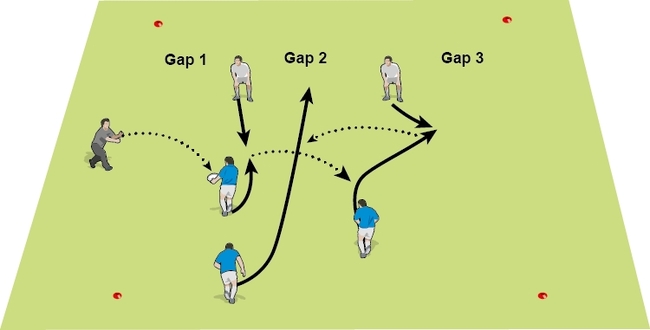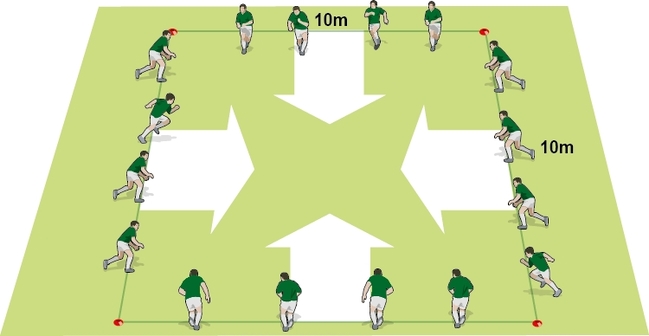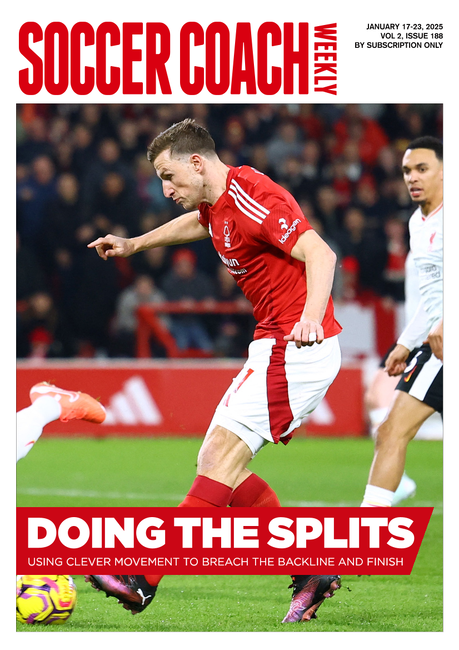9 easy tests to monitor fitness
Fitness & Conditioningby Dan Cottrell
The Wilf Paish rugby tests – named after the late British Olympics athletics coach – examine a player’s general fitness. All you need is a pitch, cones, 30m tape measure, stopwatch and a helper…
The Cooper 12-minute run. Simply record how far the player can run in 12 minutes. Run around the four corners of the pitch.
30m sprint time, record the best of three attempts.
Count the number of squat thrusts completed in 1 minute.
Count the number of sit-ups completed in 1 minute.
Count the number of press-ups completed in 1 minute.
Stamina bound over 22m. It’s a shuttle system, with immediate turnabouts, in the following sequence: hop right leg, giant strides, hop left leg, giant strides, double foot bounds, sprint. Record the total time taken.

Zigzag run. Record the time taken to run from A to B, pick up a ball and run to C, zigzag between the cones to D, then zigzag back to C, sprint to E, put the ball down and sprint to F.
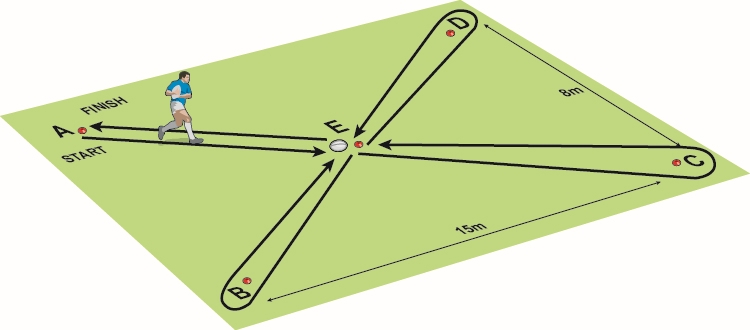
Star run. Place balls at A and E. The player starts at A, picks up the ball and runs to E, changes the balls over, then sprints around the cone at B and back to E to change the balls over. He then runs round cones C and D in turn, changing the ball over at E each time before returning to A. The distance from A to B is 8m and from A to D is 15m. Record the time taken to complete the agility run.
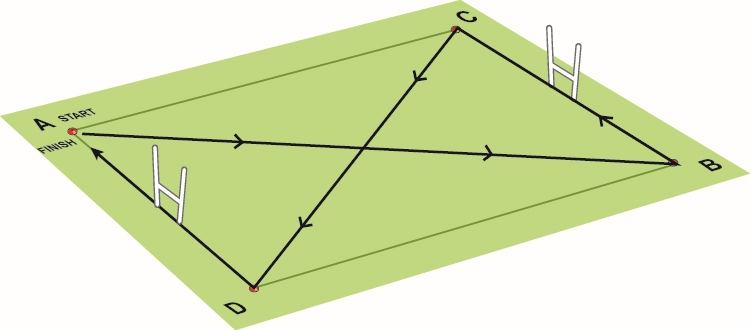
Diagonal pitch run. Record the time taken to sprint from A to B, to C to D, and finish back at A.
Compare the results to previous tests. With appropriate training between each test, the player’s fitness and strength should improve.
Points should be allocated as follows, but don’t worry about the maths! Use the WP test sheet
Test 1 (Cooper run distance minus 2,560) divided by 14.4 =
Test 2 (6.7 minus time in seconds) divided by 0.032 =
Test 3 (number of squats minus 25) divided by 0.65 =
Test 4 (number of sit-ups minus 15) divided by 0.5 =
Test 5 (number of press-ups minus 25) divided by 0.75 =
Test 6 (78 minus total time) divided by 0.48 =
Test 7 (25.8 minus zigzag time) divided by 0.098 =
Test 8 (16.8 minus star run time) divided by 0.068 =
Test 9 (100 minus diagonal pitch time) divided by 0.4 =
You might want to compare the results of a heavy forward with a much lighter back. If doing this, simply add 50 points to the forward’s total score.
You can also use the test to decide if a player who has been injured is ready to resume training. When the player is able to score the same total as he did prior to the injury, he’s probably ready to return.
The tests are taken from 101 Performance Evaluation tests by Brian McKenzie.
TEST 1
The Cooper 12-minute run. Simply record how far the player can run in 12 minutes. Run around the four corners of the pitch.
TEST 2
30m sprint time, record the best of three attempts.
TEST 3
Count the number of squat thrusts completed in 1 minute.
TEST 4
Count the number of sit-ups completed in 1 minute.
TEST 5
Count the number of press-ups completed in 1 minute.
TEST 6
Stamina bound over 22m. It’s a shuttle system, with immediate turnabouts, in the following sequence: hop right leg, giant strides, hop left leg, giant strides, double foot bounds, sprint. Record the total time taken.
TEST 7

Zigzag run. Record the time taken to run from A to B, pick up a ball and run to C, zigzag between the cones to D, then zigzag back to C, sprint to E, put the ball down and sprint to F.
TEST 8

Star run. Place balls at A and E. The player starts at A, picks up the ball and runs to E, changes the balls over, then sprints around the cone at B and back to E to change the balls over. He then runs round cones C and D in turn, changing the ball over at E each time before returning to A. The distance from A to B is 8m and from A to D is 15m. Record the time taken to complete the agility run.
TEST 9

Diagonal pitch run. Record the time taken to sprint from A to B, to C to D, and finish back at A.
THE ANALYSIS
Compare the results to previous tests. With appropriate training between each test, the player’s fitness and strength should improve.
Points should be allocated as follows, but don’t worry about the maths! Use the WP test sheet
Test 1 (Cooper run distance minus 2,560) divided by 14.4 =
Test 2 (6.7 minus time in seconds) divided by 0.032 =
Test 3 (number of squats minus 25) divided by 0.65 =
Test 4 (number of sit-ups minus 15) divided by 0.5 =
Test 5 (number of press-ups minus 25) divided by 0.75 =
Test 6 (78 minus total time) divided by 0.48 =
Test 7 (25.8 minus zigzag time) divided by 0.098 =
Test 8 (16.8 minus star run time) divided by 0.068 =
Test 9 (100 minus diagonal pitch time) divided by 0.4 =
You might want to compare the results of a heavy forward with a much lighter back. If doing this, simply add 50 points to the forward’s total score.
You can also use the test to decide if a player who has been injured is ready to resume training. When the player is able to score the same total as he did prior to the injury, he’s probably ready to return.
The tests are taken from 101 Performance Evaluation tests by Brian McKenzie.
Newsletter Sign Up
Coaches Testimonials

Gerald Kearney, Downtown Las Vegas Soccer Club

Paul Butler, Florida, USA

Rick Shields, Springboro, USA

Tony Green, Pierrefonds Titans, Quebec, Canada
Subscribe Today
Be a more effective, more successful rugby coach
In a recent survey 89% of subscribers said Rugby Coach Weekly makes them more confident, 91% said Rugby Coach Weekly makes them a more effective coach and 93% said Rugby Coach Weekly makes them more inspired.
Get Weekly Inspiration
All the latest techniques and approaches
Rugby Coach Weekly offers proven and easy to use rugby drills, coaching sessions, practice plans, small-sided games, warm-ups, training tips and advice.
We've been at the cutting edge of rugby coaching since we launched in 2005, creating resources for the grassroots youth coach, following best practice from around the world and insights from the professional game.


